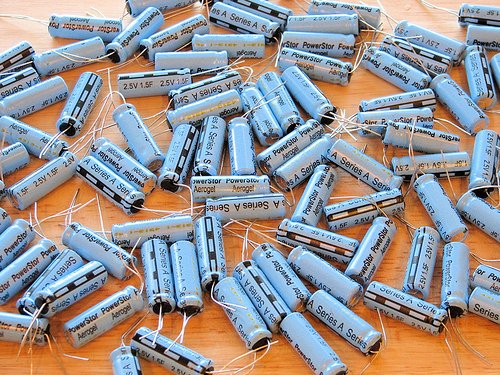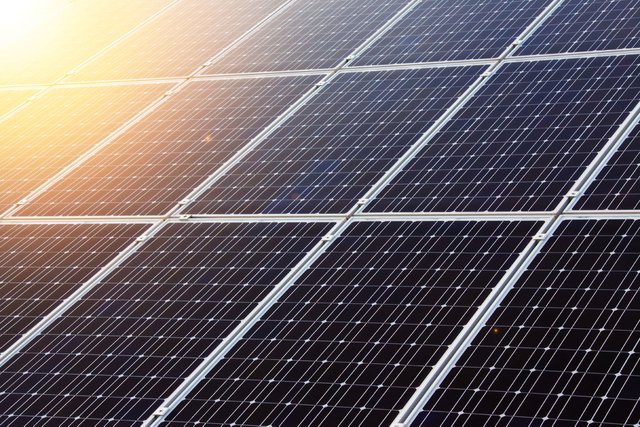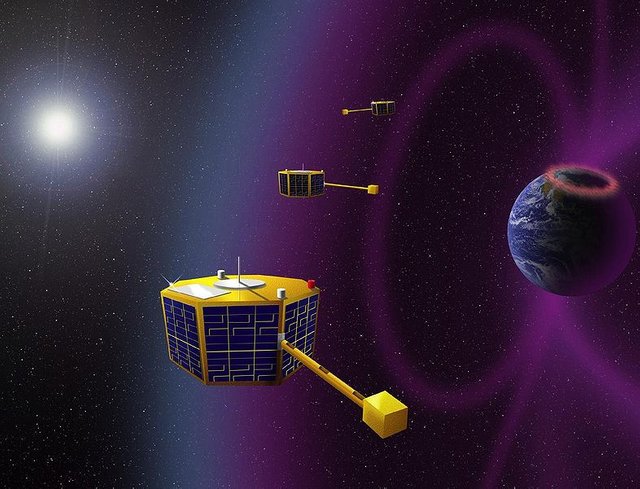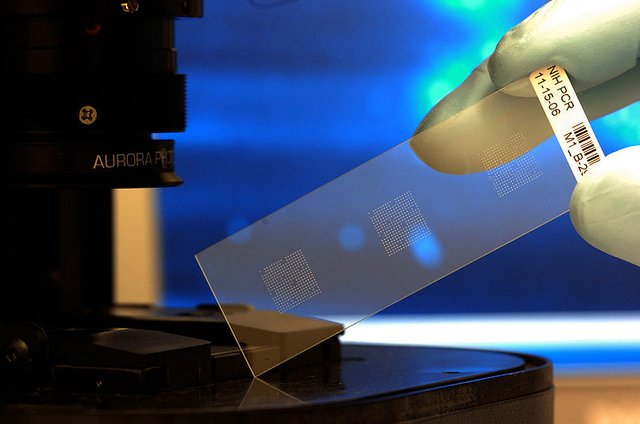
Whether you're a movie lover or not, I can bet that you weren't left out of the whole frenzy that the Wakandan fans caused some few months ago.
Even before its release, the Marvel Comics well-hyped movie, Black Panther, was on the lips of almost everyone. From the famous goal jubilation adopted by football players like Pogba and Jesse Lingard to the crafted dance adopted from the popular cross-hand greetings of great Wakandans. We just couldn't ignore its arrival.
But aside from all these frenzies, the superpower possessed by the great Black Panther courtesy of the Vibranium-mutated heart-shaped herb amazed me the most. The technology it enhanced and how effective the technologies were piqued my interest. I couldn't hold myself from asking questions about the possibility of the existence of this Vibranium enhanced technology in real life.
I asked...
Is the Black Panther's Vibranium real? Do we have any element close to it? Are these technologies even possible?
To start with, Vibranium, the wonder element that has great vibration absorption properties is only a fictional metal that exists in the African nation Wakanda as a creation in the popular America comic books published by Marvel Comics.
With Vibranium, the Black Panther's armor is able to absorb all forms of energy directed to it, be it kinetic or Sound energy. It will just soak it up and spread it round its molecules.
Another amazing Vibranium-enabled phenomenon in this awesome character is the ability to cushion the impact of a multistorey fall. The Black Panther Shoe which is made with Vibranium makes it possible for him to not feel any impact of falling nor witness any dislocation.
All these, coupled with many other applications of vibranium like in increasing the speed of the Magnetic levitation train, instant healing, virtual cars and many more make this metal a unique one. Thus, it is of interest to know whether we may have something close in our mundane world down here.
On Gizmodo weekly Giz asks , a number of Material Scientists and Metallurgy Engineers were asked about the possibility of the existence of a real-life metal that compares to Vibranium. Most of them maintained the fact that Vibranium can most likely exist as a fictional metal.
It was said that it is impossible for a single metal to own all those properties fictionally exhibited by Vibranium. Many said it is possible to achieve in different metals some of its properties unlike how it existed singly in Vibranium.
Many, however, think we could have some significant properties of Vibranium exhibited by some metal on planet Earth too. They were of the opinion that Graphene, an allotrope of Carbon is a metal with good prospects of giving us some wonderful aids in technology comparable to that of Vibranium.
Graphene. [Source: Max Pixel] - CC0 Public Domain
It is a strong, lightweight metal, which is why many scientists nominated it to be the next best thing to sliced bread and could be the metal to at least give us a taste of what Vibranium is in our world down here.
So, what really is Graphene? How special is it? What can be achieved with it? Could it transform our technology as much as Vibranium did for Wakanda? How much change could it do to our world?
Let's find out together
Graphene
What is Graphene right?
Well, just as Graphite and Diamonds are allotropes of Carbon, Graphene is also an allotrope of Carbon. By allotrope, I meant the different physical forms for which an element can exist.
Did I hear someone grumble? I guess you're part of the few that finished high school a long time ago.
If you are like me, you would probably still think the only existing allotropes of Carbon is the soft, black and dull Graphite and its counterpart - the super-hard sparkly crystal, Diamond. Well, I'm sorry to tell you that we are quite archaic for there are a number of other allotropes of Carbon in existence now.

Allotropes of Carbon [Source: Wikimedia Commons] - CC BY-SA 3.0 unported
We also have the Nanotubes which is a curve tube of a nanometer-diameter from flat sheets of Carbons and the most recent one - Graphene, the thinnest and lightest metal in existence.
So, fam! We need to do some upgrading.
Graphene is actually a descendant of Graphite. It is a single layer of graphite achieved from a process known as mechanical exfoliation. This involves the dissection of Graphite layer by layer until one single layer remained to produce an atom-thick layer of Graphene.
This tiny piece is seen as special for its two-dimensional crystalline structure. It has been thought before its discovery in 2004 that two-dimensional compounds would become thermally unstable after undergoing such separation exhibited in the exfoliation process. But, it defied the odds by not being affected by any thermal fluctuations owing to the small and strong hexagonal carbon to carbon bonds existing in it.
Even though it is only an atom thick with a weight of about 0.77milligrams, it is said to exhibit such great strength that it can puncture a thin sheet of graphene, an energy equivalent to an Elephant Balanced on a Pencil will be needed to perform this.
This possibility can be seen from its amazing tensile stiffness of about 150,000,000 psi which is around 100 to 300 times that of steel and a massive 0.5 Tera Pascal Young Modulus. Other unique properties of this wonder metal are its thermal heat conductivity of about (4.84±0.44) × 103 to (5.30±0.48) × 103 W/mK, its electron mobility of over 15,000 cm2/Vs, its exceptional levels of light absorption amongst others.
So, what are the Applications of Graphene that could give us a taste of Vibranium?
Supercapacitors and High-energy storing Batteries
The First and probably one of the most eye-catching applications of Graphene is being able to create Supercapacitors out of it. If you read @greenrun's post on the Quest for fast charging batteries, you would know how fabulous this graphene-enabled fast charging battery is.

Super Capacitors. [Source: Flickr] - CC-BY 2.0
With the Graphene high surface-area-to-mass ratio, it becomes suitable for this application. Super fast charging can be achieved with the application of stacked layers of Graphenes in batteries.
Researches in this field have grown so much that in 2015, a micro-supercapacitor that can fit into wearable devices like a wristwatch which can hold twice as much as the existing high-power lithium-ion batteries can hold has been developed.
These graphene-enhanced supercapacitors don't only boost charging but also gives batteries longevity. It was found that using graphene tin oxide as an anode in lithium-ion batteries, they can have their potential capacity increased by a factor of 10 without almost no reduction in storage capacity between battery charges.
What could be made out of this?
The technology of electrically powered vehicle could become more achievable as we can have batteries that can last longer and charge within minutes. Also, people like us who like to stay online every second could have our phone having batteries lasting for almost a day (if not days) and also, a fast charge within minutes when recharging.
Isn't that Wakandian?
Photo Voltaic Cells

Solar Cells. [Source: Public Domain Picture] - CC0 Public Domain
Currently, with the increasing price of silicon and the more economical features of Graphene, we could be seeing a change in the make-up of photovoltaic cells.
Unlike in Silicon where heat in form of photons is emitted for every electron generated in the process of converting light to electricity, Graphene, on the other hand, are known to absorb the photons instead while also creating multiples of electrons.
Also, while silicon is limited to only some wavelength band of lights while generating electricity, graphene can do so on all wavelengths.
The Wakandian possibility of graphene in this application is the possibility of making microscale photovoltaic cells that could be embedded within clothing and could be used to charge our phone while walking in the sun.
Wouldn't that be fabulous?
Have you seen my post on the portable solar generator? It is a portable generator that can power a handful home appliance like refrigerator, microwave and many others. With graphene used to improve this, then we are close to getting better results in this field.
Graphene in Space Technology

Space Tech. [Source: Wikimedia Common] - Public domain (NASA)
In aeronautics, the prominent advantage of graphene will be its lightweight and strength when compared to Aluminium and Titanium which are the existing material used for aircraft.
With its improved features that Graphene brings in, we are on track into achieving the manufacture of better performing aircraft.
But is that all? What about some extraordinary features?
Well, with Graphene, we could have some dreams actualized soon. Have you heard of Space Solar Sails? Well, that's our Wakandian spaceship!
On a serious note, Solar Sails are very large sails coated with reflective materials that reflect sunlight and the resulting pressure from the reflection propels it in space.
Solar sails are used to propel lightweight spacecraft, say about 25kg, into the solar system. But, we know that we would need to propel spacecraft with a larger mass than 25kg. So, here comes the need for graphene which is quite lightweight and strong.
The use of graphene for building Solar Sails would allow us to increase the surface area of the solar sails, hence more reflecting surface, and more thrust. Then, we would probably be able to replace the fuel powered rocket that is used in the propulsion of most spacecraft.
Other than the limiting non-reflective property of graphene, which can actually be improved by adding some coating to the sail's surface, then, we could soon have a sun-powered spacecraft replacing the tonnes of fuel burnt in powering some spacecraft that only travel to the earth orbit in like 8 mins while burning that much fuel.
Additionally, graphene-enabled sensors can be mounted on this space crafts to measure many space parameters and we could get better information without needing to fly a human into such space.
Medicine

Bio Chip [Source: Wikimedia Common] - CC BY SA 2.0 License
It can be used as a material for biomedical applications such as in MEMS biosensors that could be used in monitoring glucose levels, DNA sequencing, and cholesterol level in the body.
In 2011, it was also discovered by Researchers that graphene has the ability to accelerate osteogenic differentiation of human mesenchymal stem cells without the use of Biochemical Inducers. (Source)
Tissue Engineering, Contrast agents, bioimaging, Polymerase chain reaction, and Drug delivery are other medical applications where graphene's lightweight and strong atomic bonding will find useful.
Ultrafiltration
We are not done yet with Graphene, in fact, these are only a summary of what we could achieve with it.
.jpg)
Ultrafiltration [Source: Wikimedia Common] - Public Domain
Currently, aluminum oxide is used in sub-100nm filtration applications but unlike graphene, it is quite brittle and has lesser strength. Other than that, graphene can also be used for as low as 5-nanometer pore size filtration making it adaptable for water filtration and desalination systems.
Phone and Computer Screens

Screen [Source: Pixnio] - Public Domain
With its thin layer, high electronic conductivity, and lightweight, Graphene could replace Indium-tin-oxide (ITO) and Silicon materials in electronic devices and MEMS.
Graphene transparent electrodes as reported by Bae et al (2010) based on CVD deposition of graphene on copper foil can be used in producing touch screens for electronic devices.
Reduced power requirements, flexibility, and high optical transparency are what makes graphene a better replacement for this touchscreen applications. It can also be used as a material for colored e-reader displays and smartwatches which currently adopts Silicon in their production
Don't we feel like Wakandians already? Well, with Graphene available to us, I do!
Graphene - The Game Changer!

Graphene. [Source: Wikimedia Common] - CC BY SA 2.5
With the materials we have and the constantly improved knowledge, we are on the verge of unlocking some doors in areas like super-light smartphones whose batteries can last for weeks, invisible cloaks, iPads and computers that can be folded and fitted into our pockets, space elevators, micro superchargers and many more.
Wrap Up
So far so good, we have been able to see what a wonder metal Graphene is. Though it may not exhibit as many supernatural properties like Vibranium does but definitely, it would make a significant impact in changing the achievements possible in the different field of technology.
Its strength even though it is quite light in weight makes it embeddable in many systems and its other highly conductive properties makes it stand out amidst other metals we have on our mundane planet Earth
I hope I've been able to help you understand what Vibranium is and how graphene could help shape the world in its absence.
While we await the arrival of Vibranium here, let's achieve great things with Graphene!
Thanks for your time!
References
- Les Johnson and Joseph Meany, 2018 - "Graphene"
- E. L. Wolf - "Applications of Graphene - An Overwiew"
- Swapan K. P., Toshiaki Enoki, and Rao C. N., 2011 - "Graphene and its Fascinating Properties"
- Jamie H. Warner, Fransizka Schäffel, Mark H. Rümmeli, and Alicja Bachmatiuk (Eds.) - Graphene. Fundamentals and emergent applications (2013, Elsevier)
- Graphene by Chris Woodford - Explainthatstuff | Graphene
- Graphene - What Is It? by Jesus de La Fuente - Graphenea - The Article
- "Can Black Panther's Vibranium Ever Be Real?" by Daniel Kolitz - Gizmodo
- "What's the Closest Real-World Material to Black Panther's Vibranium?" - Inverse
- "The Magical Bulletproof Material That Made Iron Man Give Up Iron" - Wired
If you write STEM (Science, Technology, Engineering, and Mathematics) related posts, consider joining #steemSTEM on steemit chat or discord here. If you are from Nigeria, you may want to include the #stemng tag in your post. You can visit this blog by @stemng for more details.

I'm a proud member of @promo-mentors where you get mentored and guided on how to make quality posts on steemit amongst other benefits. Do join us on discord
. We anticipate your arrival.


This part of your post reminds me of my article titled "it's actually possible to tap loads of energy from the sun at night".
Cost of setting up large materials in space is a major challenge to this technology. Graphene would help a great deal in making this become a reality.
This has to go down as my favourite read so far. If Chemistry was thought this way in school, I wouldn't have been so awful at that subject. Nice work @mrbreeziewrites
Downvoting a post can decrease pending rewards and make it less visible. Common reasons:
Submit
From a chemistry enthusiast like myself, I think it's safe to say carbon is the most important element. It's derivatives are very useful in many applications like this one you just talked about.
👏 👏 you have written so well. Keep it up.
Downvoting a post can decrease pending rewards and make it less visible. Common reasons:
Submit
Thanks for always coming around. And I'm glad I could help us learn some new things..
Cheers
Downvoting a post can decrease pending rewards and make it less visible. Common reasons:
Submit
If you keep posting, I will keep coming.
Downvoting a post can decrease pending rewards and make it less visible. Common reasons:
Submit
Hello! I find your post valuable for the wafrica community! Thanks for the great post! @wafrica is now following you! ALWAYs follow @wafrica and use the wafrica tag!
Downvoting a post can decrease pending rewards and make it less visible. Common reasons:
Submit
It's good to have learnt so much about how important and useful graphenes can be especially considering it as an alternative for silicon in the manufacturing of photovoltaic cells. So many wonders graphene seem to offer.
Beautiful put-up @mrbreeziewrites. Good one here. Kudos!
Downvoting a post can decrease pending rewards and make it less visible. Common reasons:
Submit
Yes, indeed it has many wonders.. I hope we'd be able to explore it well.. Thanks for taking time to read it. I appreciate your time here
Downvoting a post can decrease pending rewards and make it less visible. Common reasons:
Submit
Wakanda foreeeeverrrr!!!!! 😁😁😁😁
Downvoting a post can decrease pending rewards and make it less visible. Common reasons:
Submit
🙅💯
Downvoting a post can decrease pending rewards and make it less visible. Common reasons:
Submit
Hi @mrbreeziewrites!
Your post was upvoted by utopian.io in cooperation with steemstem - supporting knowledge, innovation and technological advancement on the Steem Blockchain.
Contribute to Open Source with utopian.io
Learn how to contribute on our website and join the new open source economy.
Want to chat? Join the Utopian Community on Discord https://discord.gg/h52nFrV
Downvoting a post can decrease pending rewards and make it less visible. Common reasons:
Submit
The discovery of graphene has sincerely brought about a leap on technology, awesomeness that is not fiction.
This brings me to the conclusion that the element carbon is the greatest of all as it is present in a lot of applications from the human body to fuels, food etc
Awesome write up.
Welcome back
Downvoting a post can decrease pending rewards and make it less visible. Common reasons:
Submit
Exactly, it isn't just the most abundant element for nothing..... Unlike our super chickens that have Fine jersey for nothing😂😂
Thanks for stopping by fam
Downvoting a post can decrease pending rewards and make it less visible. Common reasons:
Submit
Carbon is not an àgbàyà
Downvoting a post can decrease pending rewards and make it less visible. Common reasons:
Submit
lol
Downvoting a post can decrease pending rewards and make it less visible. Common reasons:
Submit
Hehe, abi na
Downvoting a post can decrease pending rewards and make it less visible. Common reasons:
Submit
Hey, this article is very interresting ! I'm a french fan of MCU and I like read this type of article who link real word with element of Sci-fi movies / Comic / SuperHeroes movies :)
Downvoting a post can decrease pending rewards and make it less visible. Common reasons:
Submit
Thanks for your warm words. I appreciate you dropping by. Glad I could entertain you with such work.
Downvoting a post can decrease pending rewards and make it less visible. Common reasons:
Submit
🙅 Wakanda forever.
I wonder how expensive graphenes could be and surely it is of a high value. Nice work.
Downvoting a post can decrease pending rewards and make it less visible. Common reasons:
Submit
It actually isn't that overly expensive.. Probably because you're looking at it in form of an ornamental material like diamond....
Thanks for stopping by
Downvoting a post can decrease pending rewards and make it less visible. Common reasons:
Submit
Well, this is definitely the most enlightening steemit post I've read so far.
Downvoting a post can decrease pending rewards and make it less visible. Common reasons:
Submit
I know it's steemit but you're pardoned.
Thanks for the kind words.... Glad hearing that..
Downvoting a post can decrease pending rewards and make it less visible. Common reasons:
Submit
Auto-correct and it's Hydra headed monsters
Downvoting a post can decrease pending rewards and make it less visible. Common reasons:
Submit
The major drawback with graphene would be how expensive it would be, most people cant even afford diamonds and this would be way more expensive than diamonds, and that would limit its use for sure, nice work though, enjoyed reading it
Downvoting a post can decrease pending rewards and make it less visible. Common reasons:
Submit
Thanks for your input on the topic.
However, the price of integrating graphene into the already working system is the greatest challenge we have. The silicon and ITO we are enjoying currently have had precision machines made specifically for them when they are used in production, processes and measures have been laid down for their use too. So, for graphene, we would not only worry about making machines that will work for them but also making continuous researches on how to make them work for us correspondingly to their potentials...
However, from reported works, they are projected to be quite cheaper..... Plus diamond is so costly after processing for ornamental usage.
Thanks for stopping by. I appreciate.
Downvoting a post can decrease pending rewards and make it less visible. Common reasons:
Submit
Wow... I thought all these fictional jargon had no affiliation with real life existence. I certainly hope technology will drive us to the next phase of it's utilization. Job well done, I certainly did add lots to my medulla library.
Downvoting a post can decrease pending rewards and make it less visible. Common reasons:
Submit
Thanks for taking time to read. Glad it added to your knowledge
Downvoting a post can decrease pending rewards and make it less visible. Common reasons:
Submit
I hope the likes of Krptonite (Green, red, black and so on) we watched in superman has a close relative in actual sense
Downvoting a post can decrease pending rewards and make it less visible. Common reasons:
Submit
Hopefully I could get something down about it too
Downvoting a post can decrease pending rewards and make it less visible. Common reasons:
Submit
I have been reading about batteries in smartphones using Graphene for years, but it seems we will have to keep waiting for that to happen.
Really love your idea to think about Graphene as a more realistic form of vibranium, and its potential uses are really broad as you clearly explained.
I don't know how expensive is Graphene right now, but it will surely require a big investment to create spacecraft using Graphene instead of Aluminium or Titanium.
The best part of all of this, is that we know there is a lot of potential with graphene and it is just a matter of time until we take proper advantage of all it capabilities.
Downvoting a post can decrease pending rewards and make it less visible. Common reasons:
Submit
Thanks for your input here mate!
Yes, we only know it has great potentials but before it can move on to make statements like Silicon has done, a lot of researches on its best operating conditions, optimal processes and compatible precision machines have to be manufactured to unlock its potential. Considerably, it has seen implementation in small-scale applications for which it outdid Silicon and ITO in terms of price.
So, maybe price may not be the major challenge in terms of adapting it, the best way to utilize it to cut down prices and machines that will aid large processing of it is more worrisome.
That's the idea of the post, I'm glad I could make something out of it
Thanks for dropping by, I'm a fan!
Downvoting a post can decrease pending rewards and make it less visible. Common reasons:
Submit
to be sincere i am hearing graphene for the first time i only know of graphite thanks to mechanical exfoliation process as you have mentioned. if this graphene are stronger than diamond are they also stronger than Wurtzite Boron Nitride because it seems that is the hardest substance known for now???
well written post sir, i have learnt a lot (chemistry wise)
Downvoting a post can decrease pending rewards and make it less visible. Common reasons:
Submit
Graphene is actually considered the hardest for the fact that in its monolithic form, it still has that much strength in it, unlike diamond and Wurtzite Boron Nitride which are blocks of materials. I think Wurtzite Boron Nitride only has better indent strength than diamond, I don't think it is harder.
Thanks for the kind words. I appreciate you coming around
Downvoting a post can decrease pending rewards and make it less visible. Common reasons:
Submit
Alright bro. I think i will make more research on what you've said. I will let you know what i come up with making the research. Thanks for the break down
Downvoting a post can decrease pending rewards and make it less visible. Common reasons:
Submit
So I was reading this and wondering "wakanda" genius is @mrbreeziewrites.
I thought I had read the best part till I got to ultrafiltration 🤯... Which brings me to the question of how safe graphene is?
As a food technologist, the first thing that came to mind was if the use of graphene in ultrafiltration can be extended to the food world...
Thanks for this great post, its one of a kind
🙅🏾♀️🙅🏾♀️🙅🏾♀️
Downvoting a post can decrease pending rewards and make it less visible. Common reasons:
Submit
Thanks for your continuous support and for the nice words!
Graphene-based nanomaterial is used to supplement the polymer membranes used in ultrafiltration. The main idea is because traditional ultrafiltration has some major drawbacks like membrane fouling (where some particles are still deposited on the separating membrane) and poor hydrophobility for which Graphene-based materials would help improve for its thin membrance and conductivity. It is sure a safe material like other allotropes of carbon, it will be mixed with other materials to enhance performance.
In terms of Food technology, it sure has more than enough to contribute. It could be used in food microbiology for making sensors (RAdio-Frequency Identity tags - RFID) that could help monitor preserved food giving information on how long it has been stored, where it has been stored and many more.
Equipment used in food processing could see improved properties too with Graphene adapted into the composing materials..
Graphene has a lot of potentials, we just need to tap in! I wish the supereagles could tap in some goals too
Downvoting a post can decrease pending rewards and make it less visible. Common reasons:
Submit
I have always believe that all this fictional films are not just made takes ones time but rather create an endless or future possibility in technological advancement. Imagine, an element close to vibranium, nice work @mrbreeziewrites
Downvoting a post can decrease pending rewards and make it less visible. Common reasons:
Submit
Thanks, man...Movies have been known to be a representation of an imaginary possibility which is gradually becoming possible in the recent world we are in. Thanks for coming around mate.
Downvoting a post can decrease pending rewards and make it less visible. Common reasons:
Submit
Nah... A fast charge within seconds, now that's Wakandian!
By the way, I'm sure Graphene can be made better if it can be used alongside other materials with excellent properties to form a composite which will then be better than Graphene. Or is it impossible?
Nice post.
Downvoting a post can decrease pending rewards and make it less visible. Common reasons:
Submit
Thanks for your comments. In terms of fast charging, graphene can actually charge in seconds, I just wanted to maintain a fair reception by using minutes to avoid over exaggeration. But, with Graphene supercapacitors, we could actually have phone batteries charged in seconds.
And for possible use of Graphene with other materials, it is actually in existence already and wonderful results have been generated with it. We have the Silicon-Graphene nanocomposite material used by a Researcher from the Northwestern University in lithium batteries to improve the charging rate and energy storage. There's Graphene-rubber composite too used for improving the electrical properties of the rubber.
As it is still quite new, researchers are still working on making it global
Thanks for your time here
Downvoting a post can decrease pending rewards and make it less visible. Common reasons:
Submit
This is just amazing... you deliver it!
Some year back while searching online I came in contact with graphene. I was so curious that I really wanted to have a "physical feel" of this novel material.
Carbon is a very versatile and "twist able "element that will have different properties depending on how the atoms are arranged.
Graphene is so thin that even paper is heavier than it a million times. What makes it so special is that it's electrons move so fast and act as if they are massless as observed in micro particles. It is indeed a super conductor.
Other methods of fabricating graphene include:
However, some researchers believe it is coming at a time when there are other cheaper materials being used already at some of its applicable area. For example, it might not be able to serve as transistor by itself.
I particularly look forward to seeing graphene based solar PV for the high efficiency it promises to deliver.
That is really wakada out there....
Downvoting a post can decrease pending rewards and make it less visible. Common reasons:
Submit
Indeed, with the reported properties exhibited by it, it is easy for it to become such an idol with many fans!
Well-said, this contributes greatly to why it will survive a lot where Silicon and ITO are currently making waves.
This is one of the reasons why it is crawling in terms of hitting the target of large-scale acceptance for unlike others with machines, processes laid down for their use, it will require some new machines and more and more researchers to perfect it for large-scale use and potential substitute.
With the increased adoption of Solar panels everywhere, it will be a massive lift in the field.
Thanks for the additional input, I appreciate your time here.
Best Regards
Downvoting a post can decrease pending rewards and make it less visible. Common reasons:
Submit
I think if we go to the root of it all, that is carbon, then we might be able to see why graphene is so versatile. Carbon is one element that has proven to be an irreplaceable utility.
On a "wakandian" note, I was wowed by the wonders the fictitious-vibranium, though I'm not too sure if the movie is as interesting as hyped but I'm sure of the I note read a post this captivating.
Finally, Please mentor me!
Downvoting a post can decrease pending rewards and make it less visible. Common reasons:
Submit
An interesting question about that rock. Recently I saw the avengers infinite war and I also saw with my black panther girlfriend and we were impressed how they use the vibranium in wakanda. And I said in Venezuela there is colltan or blue gold is a rock with which its components can be used for the development of technological devices such as phones, tablet, pc among others. It will be that in Venezuela there is vibranium?
Downvoting a post can decrease pending rewards and make it less visible. Common reasons:
Submit
LOL..I cdan't answer that, I guess we would need to find out
Downvoting a post can decrease pending rewards and make it less visible. Common reasons:
Submit
You deserve a Wakanda-graphene hug. This is a good way of showing the importance of a genius metal. Good write.
Wakanda forever.
Downvoting a post can decrease pending rewards and make it less visible. Common reasons:
Submit